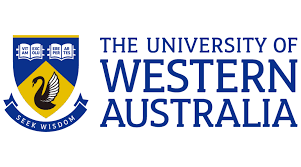University of Western Australia: Evolutionary biologist urges us to save what’s left of our natural bushland
Professor Leigh Simmons, an evolutionary biologist from UWA’s School of Biological Sciences, explores the answers to all these questions and many more in a new book, Naturalist on the Bibbulmun.
Over the Noongar seasons of Kambarang and Birak (November to January) 2018-19 he walked the Bibbulmun Track with his son.
To distract from the rigours and sometimes painful realities of carrying 17kg across 1000km of WA’s remote bushlands, he documented the flora and fauna of the southwestern corner of Western Australia.
Bibbulmun orchid card
In Naturalist on the Bibbulmun, by UWA Publishing, he details his findings and much of the research discussed in the book was conducted by scholars at The University of Western Australia.
Director of UWA’s Centre for Evolutionary Biology, Professor Simmons has spent 40 years studying animal behaviour, ecology and evolution.
The book is a beginners’ guide to evolutionary and ecological processes, and an insight into the trials and tribulations of the long-distance walker. But perhaps more importantly it is a call to arms.
The South West of WA was recognised in 2000 as one of the world’s 25 biodiversity hotspots – a region that is a significant reservoir of plant and animal species that is critically endangered.
A criterion to be part of the biodiversity hotspot club is that anthropogenic changes to the natural environment – through burning and clearing of land, and the warming and drying effects of human-induced climate change – have resulted in the loss of 70 per cent of the natural habitat.
And with human impact comes the loss of species of plants and animals that are unique to the region.
Bibbulmun wasp card
Professor Simmons believes now may be our last chance to witness and to save what remains of the ancient wilderness through which the Bibbulmun Track passes.
He hopes that his book will in some small way arouse a sense of country (boodja) and draw the reader into the small but growing mob who recognise the need to preserve the wilderness of this place, and of planet earth more widely.

